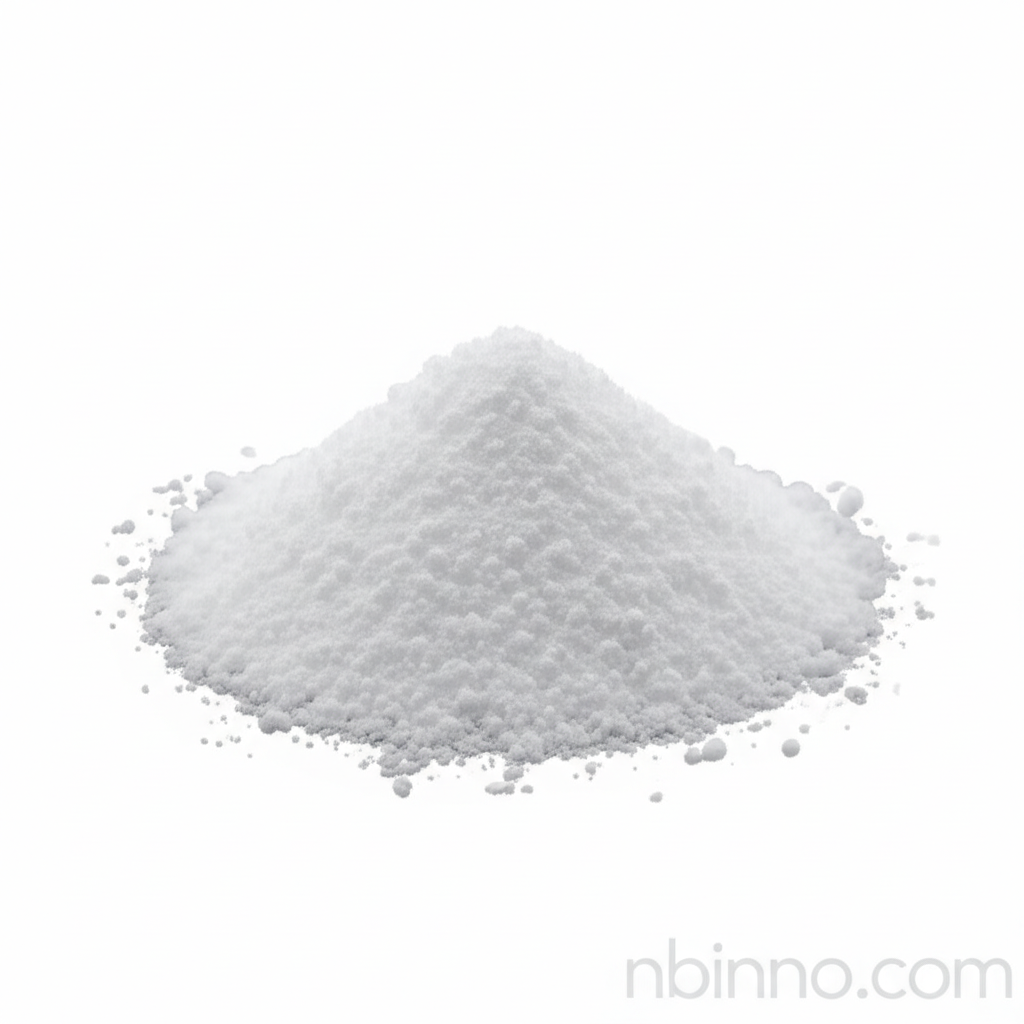Difloxacin Hydrochloride: A Veterinary Fluoroquinolone Antibiotic for Advanced Applications
Exploring the efficacy and applications of a key fluoroquinolone in animal health and research.
Get a Quote & SampleProduct Core Value

Difloxacin Hydrochloride
Difloxacin Hydrochloride stands as a vital second-generation, synthetic fluoroquinolone antibiotic, widely recognized for its significant role in veterinary medicine. Its bactericidal action, effective against a broad spectrum of Gram-negative and Gram-positive bacteria, including certain Mycoplasma species, makes it a cornerstone for treating various animal infections. The compound's mechanism involves the precise inhibition of bacterial DNA gyrase, a critical enzyme for DNA replication and synthesis, thereby preventing bacterial cell division and proliferation. This targeted action offers a powerful tool in combating a range of microbial threats.
- Investigating difloxacin hydrochloride veterinary use: This compound is specifically formulated and approved for use in veterinary applications, particularly in canines, highlighting its tailored efficacy and safety profile for animal patients.
- Understanding the difloxacin hydrochloride mechanism of action: Its primary mode of action is to inhibit bacterial DNA gyrase, essential for DNA replication, thus disrupting bacterial cell division and ensuring effective antimicrobial action.
- Exploring difloxacin hydrochloride spectrum of activity: Difloxacin exhibits a broad spectrum, demonstrating efficacy against a wide array of Gram-negative and Gram-positive bacteria, as well as some Mycoplasma species.
- Analyzing difloxacin hydrochloride pharmacokinetics: The antibiotic displays favorable pharmacokinetic properties, including rapid oral absorption and a longer elimination half-life, allowing for convenient dosing regimens in animal treatment protocols.
Key Advantages Provided
Targeted Antibacterial Action
Difloxacin Hydrochloride's ability to inhibit bacterial DNA gyrase ensures a focused attack on pathogens, minimizing disruption to host cells and contributing to effective infection control.
Broad-Spectrum Efficacy
The compound's broad spectrum of activity means it can effectively combat a diverse range of bacterial infections, providing a versatile treatment option for various conditions encountered in animal health.
Veterinary-Specific Formulation
Specifically developed for animal use, particularly canines, Difloxacin Hydrochloride offers a proven track record of safety and efficacy, aligning with the specific physiological needs of these animals.
Key Applications
Veterinary Medicine
Difloxacin Hydrochloride is extensively used in veterinary practice for treating bacterial infections in companion animals, particularly dogs, based on its documented efficacy and safety profile.
Antimicrobial Susceptibility Testing
It plays a crucial role in clinical in vitro microbiological antimicrobial susceptibility tests (AST), aiding medical microbiologists in recommending appropriate antibiotic treatments for infected patients.
Pharmaceutical Research & Development
The compound serves as a valuable reference standard and research tool in the development of new antimicrobial agents and in studies investigating fluoroquinolone mechanisms and resistance patterns.
Animal Health Product Development
Its well-defined properties make it a key component in the development of novel veterinary pharmaceuticals aimed at improving animal welfare and combating emerging infectious diseases.
